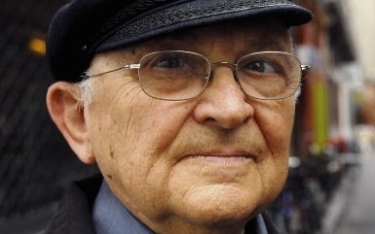
“Though not
Appelfeld’s best work,
Suddenly, Love despite its deceptive simplicity offers much food for thought and would be a good choice for book groups.” —From
my NYJB review. For a shorter synopsis of the novel see my examiner article, which
begins with the next paragraph.
Jewish books: Suddenly, Love: Aharon Appelfeld's tale of emotional healing
Suddenly, Love, Israeli novelist Aharon Appelfeld’s twentieth book to appear in an English translation was published yesterday by Schocken Books, a division of New York publisher Random House. In Appelfeld’s fiction the Shoah casts a long shadow in the lives of his European Jewish characters, and that is also the case in this new novel, but this time the setting is 1980s Jerusalem rather than the diaspora.
The two characters in Suddenly, Love are Ernst, an elderly writer in frail health, and Irena, his home health attendant who is half his age. He is a Holocaust survivor, and she is the child of survivors; he is highly educated and has a modern, skeptical outlook, while she is a high school dropout from a religiously traditional home; he is emotionally distant from his family of origin, while she is overly attached to her deceased parents.
The socio-economic differences notwithstanding, unlike Henry Higgins in George Bernard Shaw’s play PygmalionErnst does not transform Irena into a cosmopolitan upper-middle class secular Israeli. Instead the two help each other emotionally heal and grow even as Ernst’s physical health falters.
Appelfeld’s prose style has been compared to Earnest Hemingway’s for its direct simplicity, though Appelfeld cites the Hebrew Bible’s terseness as his primary stylistic influence. In my New York Journal of Books review I write, “Though not Appelfeld’s best work, Suddenly, Love despite its deceptive simplicity offers much food for thought and would be a good choice for book groups.” See that review for a fuller discussion of the novel.

Aharon Appelfeld


No comments:
Post a Comment